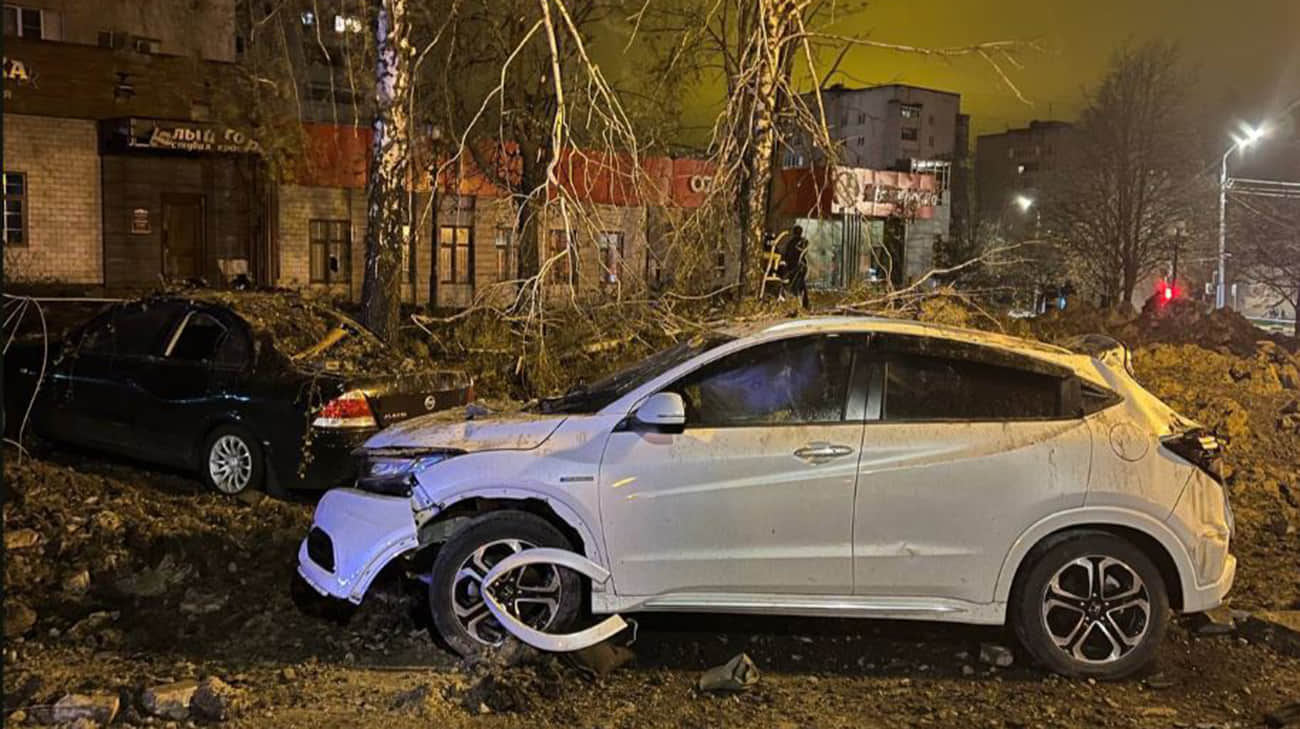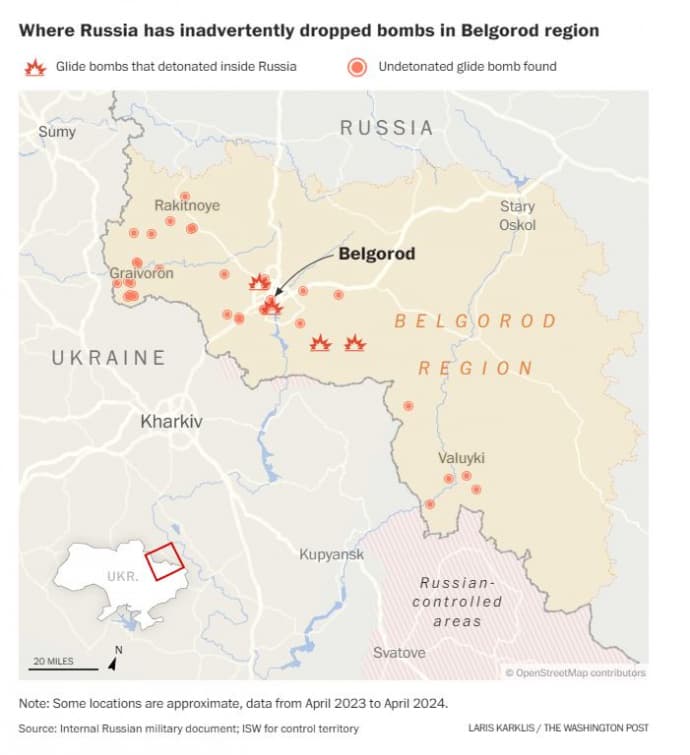The Washington Post obtains evidence of Russian glide bombs falling on Russian territory – infographic
The Washington Post has obtained internal documents from the authorities of Russia's Belgorod Oblast which confirm that glide bombs launched by the Russians on Ukraine have fallen on Russian territory.

The Washington Post has obtained internal documents from the authorities of Russia’s Belgorod Oblast which confirm that glide bombs launched by the Russians on Ukraine have fallen on Russian territory. The documents specify the locations where the bombs fell and address issues regarding the defusing of bombs and evacuation in the event of an emergency.
Source: The Washington Post
Details: The document indicates that at least 38 bombs, attributed to recent territorial gains by Russia, fell in Belgorod Oblast on the border with Ukraine between April 2023 and April 2024, although most of them did not explode.
Additionally, at least four bombs fell on Belgorod itself, a regional centre with a population of about 400,000 people. Another seven were found in the surrounding suburbs. The highest number, 11, fell in the border Graivoron district, where some could not be located due to the "difficult operational situation".
Initially intercepted by Ukrainian intelligence and passed on to The Washington Post, the document contains a table of incidents with references to emergency decrees for bomb disposal and evacuation and was produced by the emergency department of the city of Belgorod.

Most of the bombs were discovered by civilians – forest rangers, farmers, or residents of nearby villages. In most cases, the Russian Defence Ministry did not know when the bombs were launched, indicating that some of them might have been there for several days.
Independent Russian media outlet Astra confirmed that many of the incidents described in the document correspond with information it had received from local authorities and reports in local media.
Local authorities generally remain silent about these incidents, describing them only as "accidents," blaming Ukrainian attacks, or simply not reporting the various explosions in the region, especially recently.
Astra has estimated that Russia accidentally dropped over a hundred bombs on its own territory and on occupied areas in the east of Ukraine over the past four months – the same period when there was a significant increase in the use of glide bombs.
The Russian government did not respond to The Washington Post’s request for comment on the document or the reports of the failed use of glide bombs.
For reference: Glide bombs are a Soviet relic from the Cold War era, designed as "dumb bombs" for dropping on targets. Russia has adapted this large arsenal of unguided bombs to modern warfare by upgrading them with guidance systems known as UMPC (unified planning and correction module) kits – cheap retractable wings and navigation systems.
This allows Russian Su-34 and Su-35 aircraft to launch them from about 40 miles away, which is unreachable for most Ukrainian air defence systems. The Washington Post notes that glide bombs have put additional pressure on Ukraine's ground-based air defences and played a significant role in the destruction of Avdiivka, which Russian forces captured in mid-February.
"Ukraine’s best defence against them is the US Patriot surface-to-air missile that can destroy a Russian aircraft before it approaches to release the bomb, but the systems are in short supply," the publication writes.
At the end of March, the Russian Defence Ministry announced the development of a new, heavier version of the glide bomb, the FAB-3000. It was finally deployed on 21 June against the Ukrainian village of Lyptsi. The Russian military also reported that the production of the lighter FAB-500 and FAB-1500 bombs had been sharply increased.
Background:
- In April 2023, the Russian Defence Ministry reported that the explosion in the Russian city of Belgorod was caused by the fall of an aircraft munition during the flight of a Su-34 fighter-bomber belonging to the Russian Aerospace Forces. Military sources said that residential buildings had been damaged as a result of the incident.
- Also, in January 2024, a Russian munition fell in the village of Petropavlovka (Voronezh Oblast, Russia), located near the border with Ukraine, during a missile attack on Ukraine. A resident in a video said that an entire street had been destroyed as a result of the explosion. He said that a missile had fallen.
Previously: Earlier, President Volodymyr Zelenskyy said that over the past week alone, Russia had used more than 800 guided aerial bombs against Ukraine. "Ukraine needs necessary forces and means to destroy the carriers of these bombs, mainly the Russian attack aircraft where it is deployed. This step is needed," he said.
Zelenskyy said that to effectively counter Russian guided aerial bombs, the Ukrainian Armed Forces need not so much Patriot air defence systems as long-range ATACMS missiles.
Support UP or become our patron!



